How do we use the Future in French? The Simple Future vs. the Future Perfect
Also wondered how do we use the Future in French ?
This week we meet again for a new video from our French teachers at alpha.b.
Don’t forget to follow our online classes each week, Monday to Friday, click here to learn more.
We will be learning how to use the future in French.
Do you know the difference between the simple future and the future perfect?
Boris, who has been a teacher at the French school alpha.b for many years, will explain everything in the video.
Today I will teach you to organise actions in the future.
The Use of the Future in French
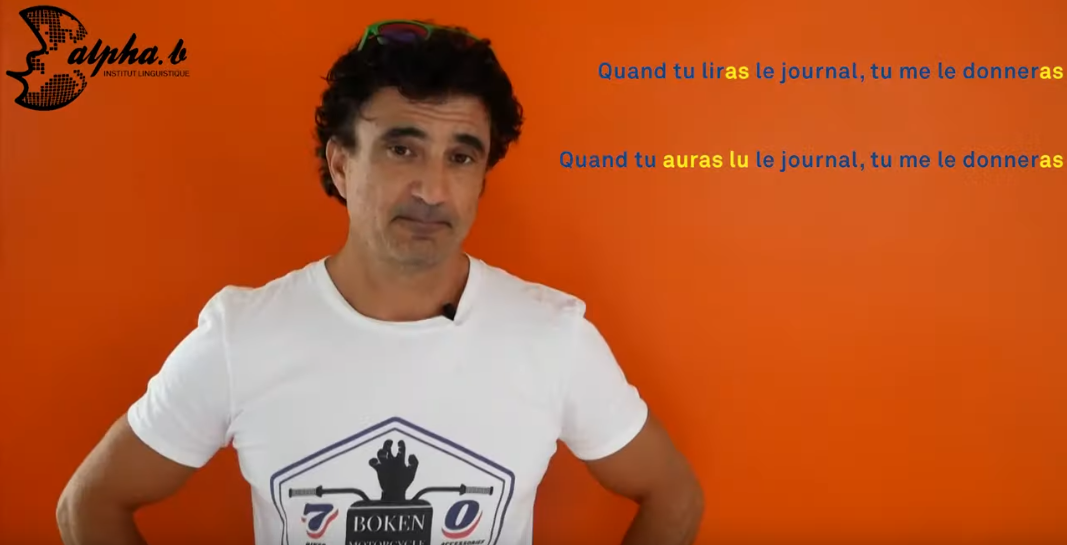
Look at these 2 sentences:
- “Quand tu liras le journal, tu me le donneras” (When you [will] read the newspaper, you will give it to me)
- “Quand tu auras lu le journal, tu me le donneras” (When you [will] have read the newspaper, you will give it to me)
Which is the correct sentence?
The 1st or the 2nd?
The 2nd is correct.
The first is absolutely not possible.
In the first sentence there are two actions.
And also in the second.
But in the first sentence “Quand tu liras le journal, tu me le donneras”, it is impossible to read the newspaper and to hand it over at the same time, and all of that in the future.
We need to have a chronology of actions, like in the past tense.
It is necessary to finish reading the newspaper before handing it over.
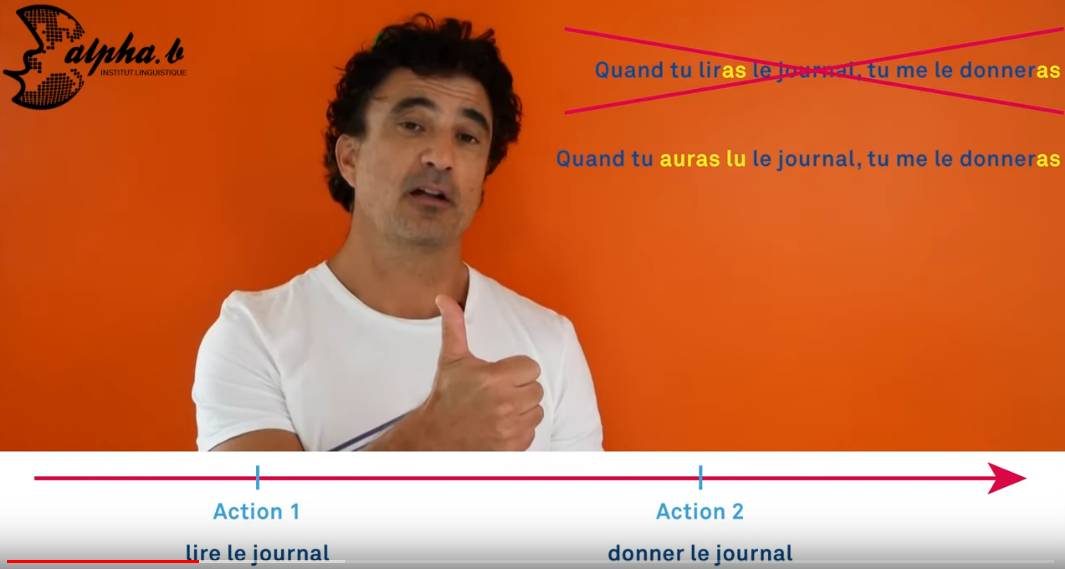
In the future there are two actions:
- Read the newspaper
- Give the newspaper
The slightly strange future form that you saw in the second sentence is the future perfect, the second future.
It is a bit like the pluperfect tense in the past.
It is a compound future tense:
Auxiliary verb in the future + past participle
It’s a bit like a future past, a future before another action in the future.
You are probably wondering if this future is really so important?
But of course, we use the future perfect every day.
Amongst students, teenagers, mothers and fathers.
For example:
“Maman, maman, est-ce que je peux aller faire du skateboard avec mes amis ?” (Mother, mother, can I go out skateboarding with my friends?)
“Oui bien sûr, quand tu auras fini ta soupe, tu iras faire du skateboard” (Yes of course, when you [will] have finished your soup, you will go skateboarding)
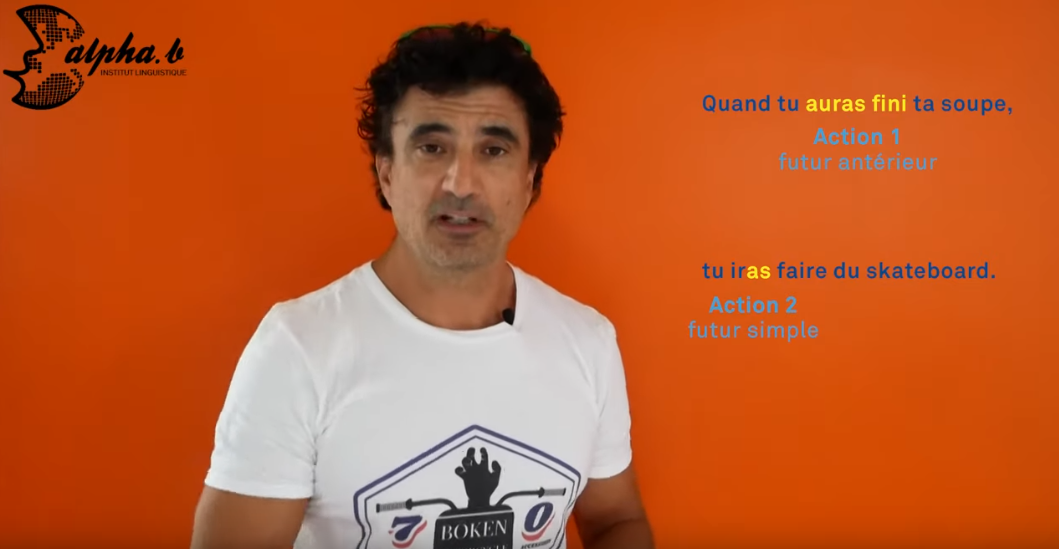
“Docteur, est-ce que je peux rentrer à la maison, je pense que je vais mieux.” (Doctor, can I return home, I think that I am better)
“Oui bien sûr, vous rentrerez à la maison quand vous aurez fini le traitement. Il faut finir le traitement et ensuite vous pourrez rentrer. ” (Yes of course, you will go home when you [will] have finished the treatment)
Imagine that you are in the car, you are late, your son is coming out of school and the police stop you for a check.
The police officer: “Arrêtez-vous ! ” (Stop!)
You: “S’il vous plait, est-ce que je peux passer, mon fils sort de l’école dans 10 minutes, est-ce que je peux partir ? ” (Can I go past please, my son is coming out of school in 10 minutes, can I go?)
The police officer: “Vous pourrez partir quand j’aurai contrôlé votre carte d’identité” (You will be able to leave when I [will] have checked your identity card)
It is the no. 1 action of the police officer.
Everyday we use the future perfect.
You have seen the films with Brad Pitt and George Clooney: Ocean’s 11, Ocean’s 12, Ocean’s 13.
In all these films, there are people who plan a heist, a robbery of a casino.
And the chronological actions are very important:
Before entering into the room with all the vaults where all the money is, they must first disconnect the alarm, otherwise the police would arrive in 2 minutes.
So George Clooney says to Brad Pitt:
“Demain nous irons au Casino Royal, quand nous serons rentrés dans le Casino, nous déconnecterons l’alarme” (Tomorrow we will go to the Casino Royal, when we [will] have entered the casino, we will disconnect the alarm)
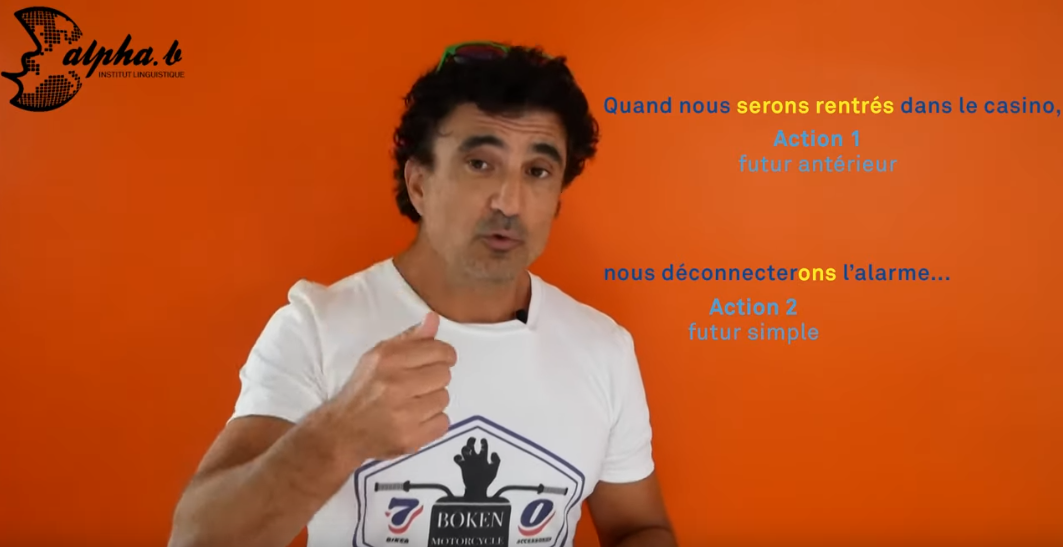
“Quand nous aurons déconnecté l’alarme, nous rentrerons dans la salle des coffres” (When we [will] have disconnected the alarm, we will go into the vault room)
And yes, of course they must disconnect the alarm before they go into the vault room.
So here it is obligatory, you must absolutely use the future perfect, which is in the future but before the simple future.
It is exactly like the relationship between the pluperfect and the past perfect.
I will add two sentences to the board:
“Dans 1 mois, nous déménagerons.” (In one month, we will move out)
“Dans 1 mois, nous aurons déménagé.” (In one month, we will have moved out)
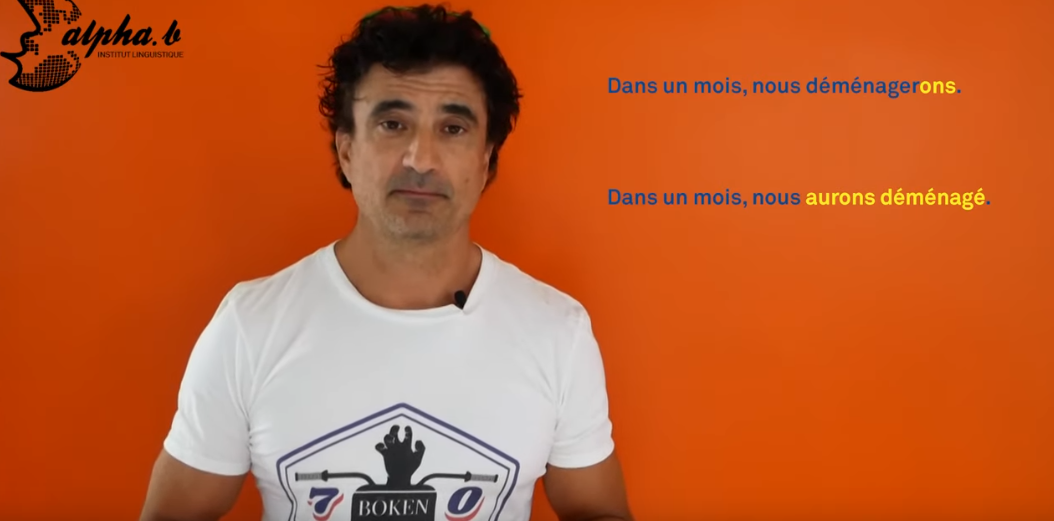
Which is correct?
The first? The second? Both?
Both sentences are correct.
We can use the future perfect on its own, without another action.
In the first example:
“Dans un mois, nous déménagerons.”
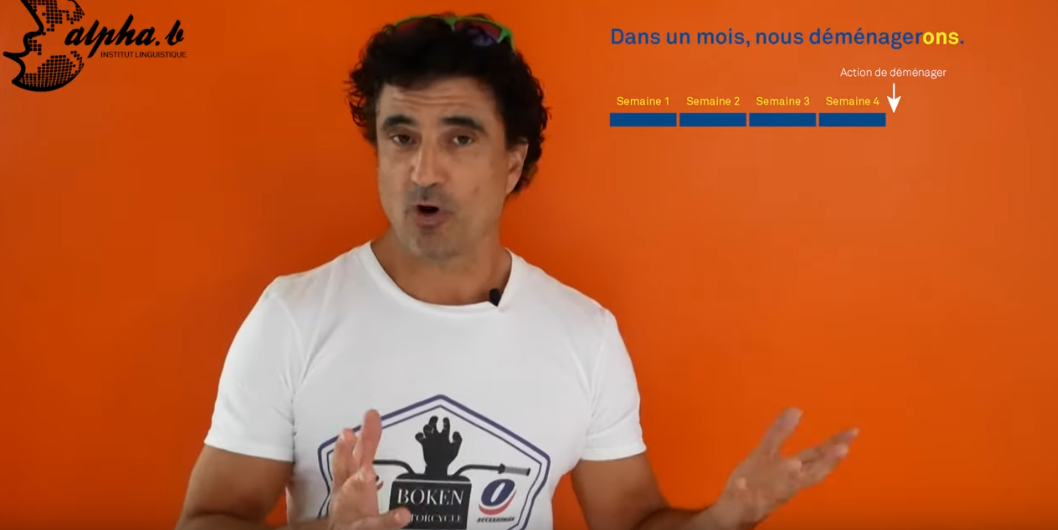
You have 4 weeks in a month, if you say in one month we will move out, that means that the move will start after the 4th week, when the month is over.
On the other hand, if you say:
“Dans un mois, nous aurons (déjà) déménagé.”
The move will intervene, will happen before the end of the month.
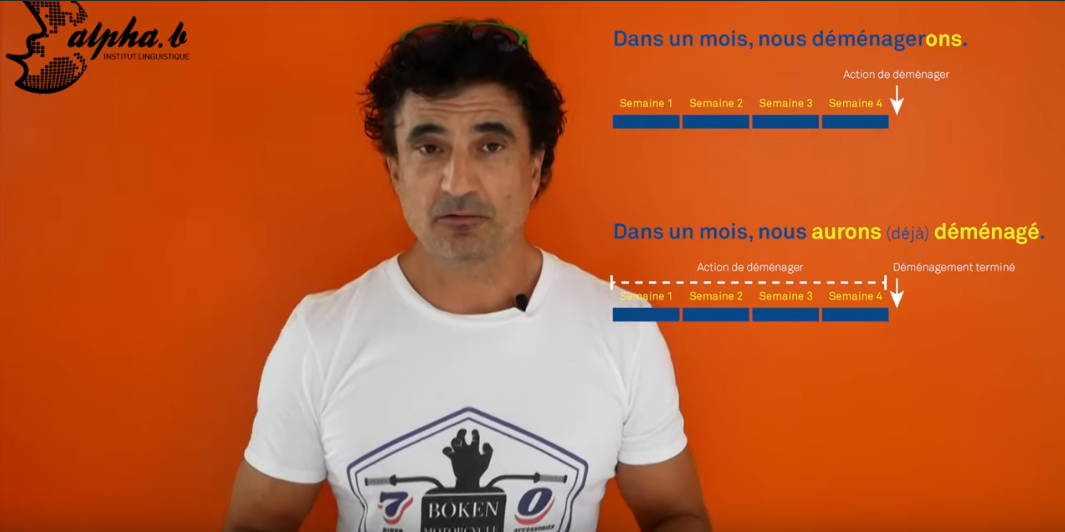
The move will be finished by the end of the 4th week or even before that.
What is sure, is that in one month the move will be finished.
Under what circumstances would we say this sentence?
For example, my friend calls me and says: “Boris, dans 1 mois, je viendrai à Nice, est-ce que je peux dormir chez toi ? ” (Boris, in one month I will be coming to Nice, can I stay with you?)
“Désolé, dans 1 mois, j’aurai déménagé, je ne serai plus à Nice donc quand tu arriveras, tu ne pourras pas me trouver, je serai déjà parti ” (Sorry, in one month I will have moved, I will no longer be in Nice so when you arrive, you will not be able to find me, I will have already gone)
The word “déjà” (already) can be used with the pluperfect but also with the future perfect.
With negative phrases you can use “pas encore” (not yet):
“Dans un mois, je n’aurai pas encore déménagé.” (In a month, I will not yet have moved)
That gives emphasis to the meaning of the sentence and the chronology of events.
You may have noticed that when I create these sentences, I use the word “quand” (when).
“Quand tu te seras brossé les dents, tu pourras regarder la télé.” (When you [will] have brushed your teeth, you will be able to watch the TV)
There are synonyms of “quand”, like “lorsque” or “une fois que”.
And then you also have two very interesting little expressions which allow you to emphasise the speed of the action.
If we take the example with the newspaper: “Dès que tu auras lu le journal, tu me le donneras.” (As soon as you [will] have read the newspaper, you will give it to me)
It means right afterwards.
Another synonym is “Aussitôt que”.
This shows that we are in a hurry, impatient.
We can use the future perfect alongside the simple future like in the first examples.
We can also use it all on its own because the simple future is implied.
“Est-ce que je peux sortir avec mes amis ?” (Can I go out with my friends?)
“Oui quand tu auras fini tes devoirs.” (Yes, when you [will] have finished your homework)
How do we form the future perfect?
It is very simple, all you need to know is:
The auxiliary verb “Avoir” or “Être” in the simple future + the past participle.
The past participle stays the same in all the compound tenses. It always stays the same.
So if you know how to conjugate “Avoir” and “Être” in the future, you know how to do the future perfect.

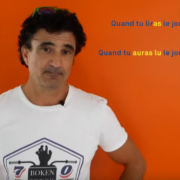



Laisser un commentaire
Rejoindre la discussion?N’hésitez pas à contribuer !